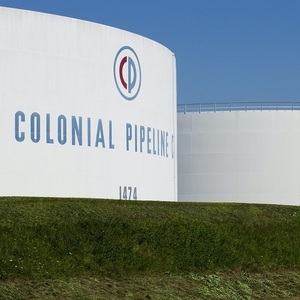Colonial to purchase 3 terminals in southern US from Lincoln

Photo: Colonial Pipeline Co.
July 2, 2020
BY Colonial Pipeline Co.
Colonial Terminals Operating Company LLC, a subsidiary of Colonial Enterprises Inc. and an affiliate of Colonial Pipeline Co., has entered into an agreement to purchase three refined product terminals from Lincoln Terminal Company Inc., a Southeast products and biofuels marketing and logistics company. Two of the terminals, located in Charlotte, North Carolina, and Chattanooga, Tennessee, are presently connected to the Colonial Pipeline system, and the other is located in Fredericksburg, Virginia.
This acquisition provides an excellent opportunity for Colonial to move into the terminal business, offering a complimentary service to the markets, including Colonial Pipeline’s customers, and lays the groundwork for further strategic expansion. Terminals are a natural extension of Colonial’s overall business, providing the opportunity to serve customers in new ways while building and strengthening relationships.
Advertisement
Over the next few months, Colonial Terminals Operating Company and Lincoln will work toward finalizing and closing the acquisition, which is expected to be completed in approximately 90 days.
Bank of America served as financial advisor to Lincoln on the transaction. No other details of this transaction will be announced prior to closing.
Advertisement
Colonial Pipeline Company was founded in 1962 and connects refineries, primarily located in the Gulf Coast, with customers and markets throughout the southern and eastern U.S. through a pipeline system that spans more than 5,500 miles. The company delivers refined petroleum products such as gasoline, diesel, jet fuel, home heating oil and fuel for the U.S. military.
Lincoln Terminal Company is a growing and leading provider of terminal services in the Southeast and Mid-Atlantic regions. The company provides throughput and storage solutions for gasoline, diesel, biodiesel and ethanol products. It operates 27 biodiesel blending sites; four full-service petroleum terminals; and three terminal transload sites. Lincoln’s loading facilities are uniquely focused on driver efficiency, inventory management and product automation.
Related Stories
CoBank’s latest quarterly research report, released July 10, highlights current uncertainty around the implementation of three biofuel policies, RFS RVOs, small refinery exemptions (SREs) and the 45Z clean fuels production tax credit.
The U.S. Energy Information Administration maintained its forecast for 2025 and 2026 biodiesel, renewable diesel and sustainable aviation fuel (SAF) production in its latest Short-Term Energy Outlook, released July 8.
XCF Global Inc. on July 10 shared its strategic plan to invest close to $1 billion in developing a network of SAF production facilities, expanding its U.S. footprint, and advancing its international growth strategy.
U.S. fuel ethanol capacity fell slightly in April, while biodiesel and renewable diesel capacity held steady, according to data released by the U.S. EIA on June 30. Feedstock consumption was down when compared to the previous month.
XCF Global Inc. on July 8 provided a production update on its flagship New Rise Reno facility, underscoring that the plant has successfully produced SAF, renewable diesel, and renewable naphtha during its initial ramp-up.
Upcoming Events










